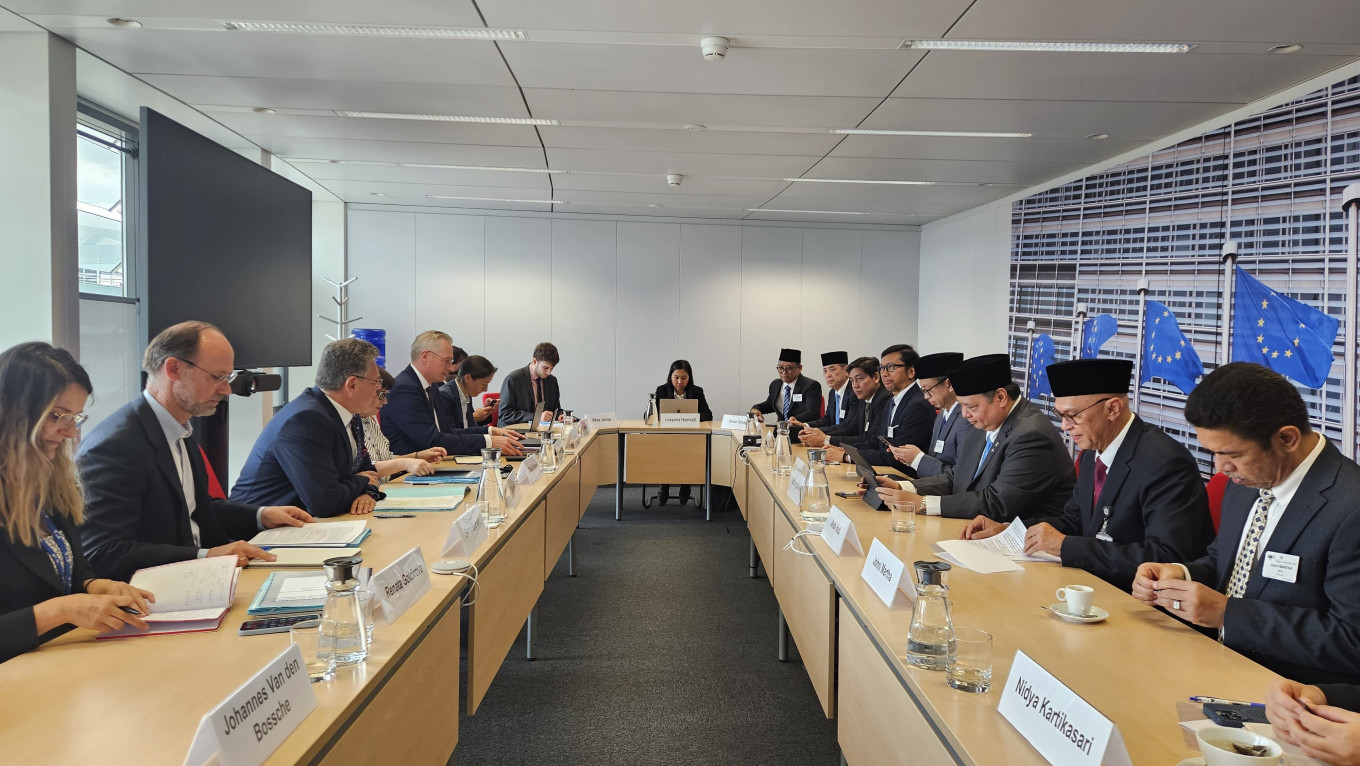Popular Reads
Top Results
Can't find what you're looking for?
View all search resultsPopular Reads
Top Results
Can't find what you're looking for?
View all search resultsIEU-CEPA Nears Completion as Indonesia, EU Resolve Final Hurdles
Change text size
Gift Premium Articles
to Anyone
T
he Indonesian government is nearing the conclusion of negotiations on the Indonesia-European Union Comprehensive Economic Partnership Agreement (IEU-CEPA), with both sides reaching consensus on all remaining issues.
Addressing a press conference on June 7 in Brussels, Coordinating Economy Minister Airlangga Hartarto confirmed that the final tasks of the ongoing talks had been completed, with key technical matters resolved during the latest round of top-level negotiations.
“This reflects the government’s commitment to finalizing trade agreements with strategic partners to expand market access, boost investment and reduce both tariff and nontariff barriers,” Airlangga said.
The chief economy minister met with EU Commissioner for Trade and Economic Security Maroš Šefčovič a day earlier to finalize the agreement, which has been in the making for nine years and included 19 major negotiation rounds.
The EU is Indonesia’s fifth-largest trading partner, with bilateral trade reaching US$30.1 billion in 2024. Indonesia posted a trade surplus of $4.5 billion this year, up from $2.5 billion in 2023.
The IEU-CEPA is expected to significantly lower import duties: Up to 80 percent of Indonesian exports to the EU are set to enjoy zero tariffs within the first two years after the agreement has been implemented. The sectors slated to benefit from the deal include labor-intensive industries such as footwear, textiles and garments as well as palm oil, fisheries, renewable energy and electric vehicles.
Indonesia has also secured equal treatment for its fishery exports similar to other ASEAN countries like Thailand and the Philippines. In addition, the EU has promised special consideration regarding its deforestation policy, potentially easing restrictions on Indonesia’s forest products.
The IEU-CEPA contains provisions on trade and sustainable growth, aligning with EU environmental standards while opening new opportunities for Indonesian businesses.
“This agreement is mutually beneficial and ensures long-term sustainability in line with evolving EU regulations,” Airlangga said.
The senior minister also emphasized the pact’s strategic importance in strengthening Indonesia’s global competitiveness and attracting more European investment.
“Both parties have agreed to finalize the material and legal processes. No obstacles remain,” he said.










